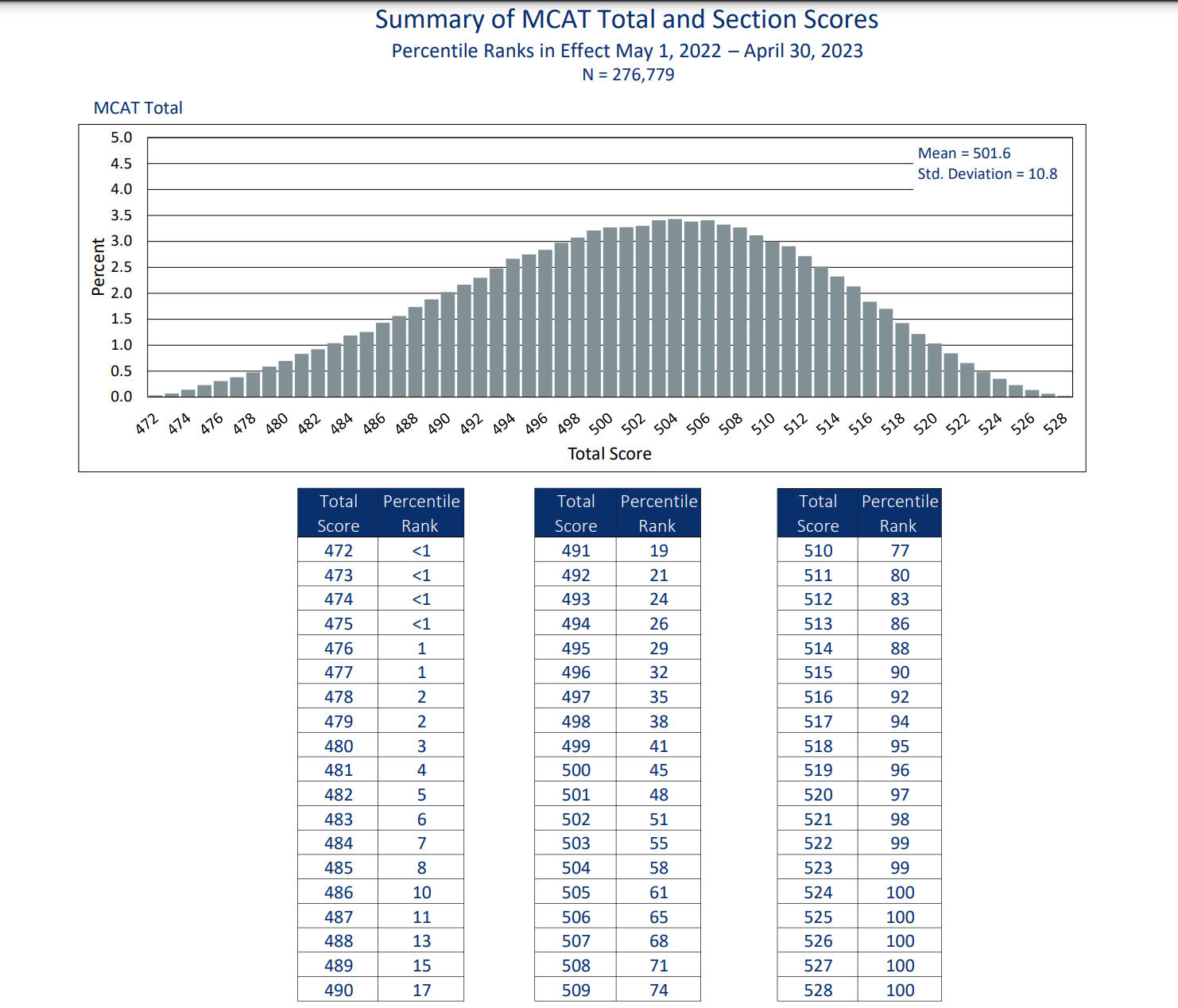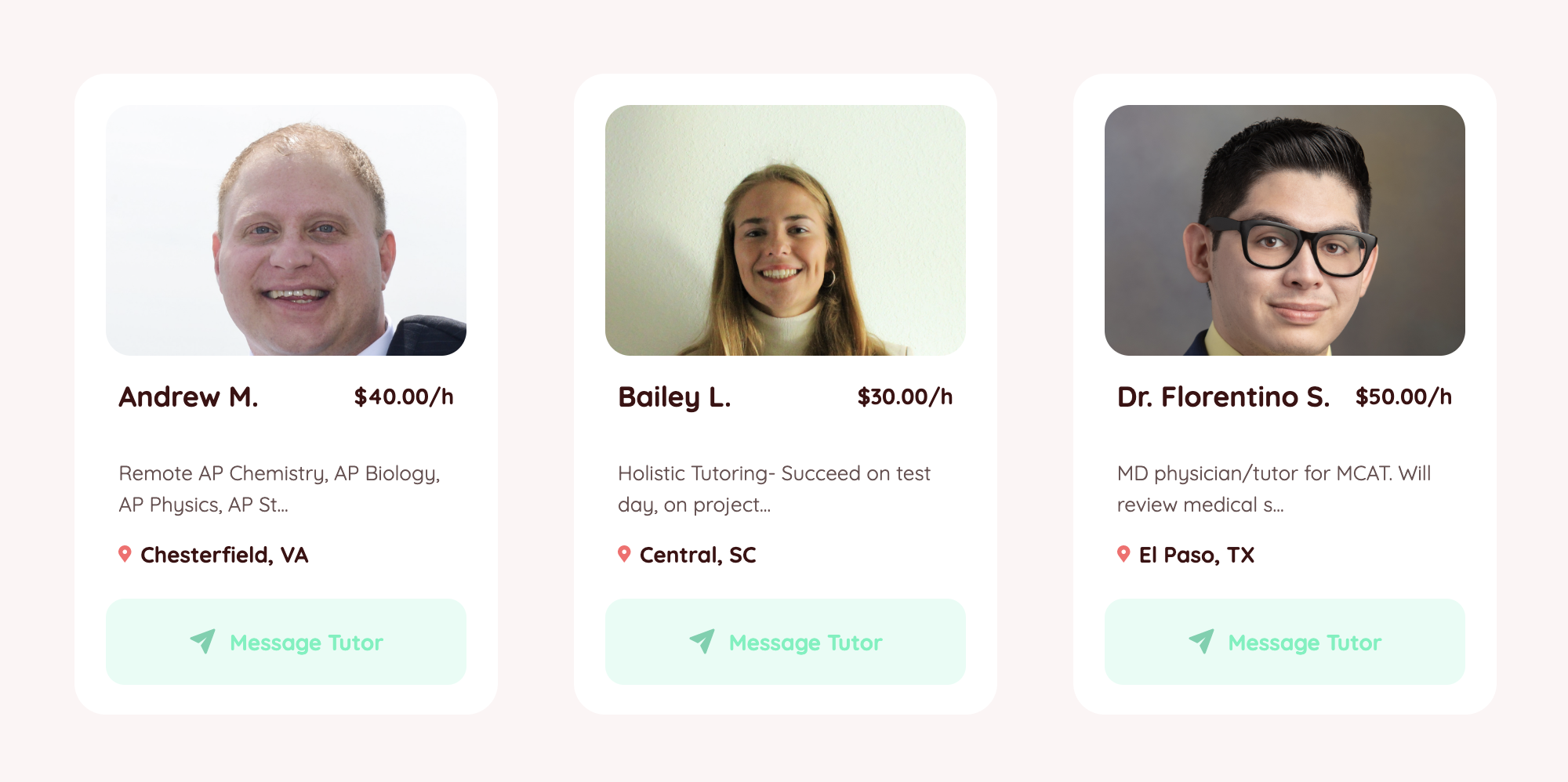Taking the MCAT can be one of the most stressful tasks on your road to a career in the medical field. It requires months of preparation, dedication, and perseverance in order to achieve that competitive test score you need to get into your dream school.
On the bright side! MCAT test prep can be made easier as long as you know how to set yourself up for success. Creating a study schedule and finding a study group or tutor to help keep you motivated can help ensure that you are on the right track to ace your exam.
To help you get started, we’ve compiled some of the most frequently asked questions we hear and some expert advice from our tutors to help you figure out how you should be approaching your MCAT prep.
What Courses Prepare You For The MCAT?
Every medical school has its own set of required courses that they will expect from their applicants, so it’s important to check with the schools you will be applying to in order to verify your class load. However, there are some standard classes that you can pretty much count on needing.
At the minimum, you’ll most likely need a full year of:
- Biology
- Chemistry
- Organic Chemistry
- Physics (trigonometry or calculus-based)
It’s also important to note that while these classes will most likely be required, that doesn’t mean you should stop here. Medical school is extremely competitive, and many applicants take classes far beyond these basics to help give them an edge—especially in biology.
It never hurts to go above and beyond and to take as many science-focused classes as you think may be helpful to your application. If nothing else, these advanced classes will give you an opportunity to study material that you will most likely face on the MCAT. The MCAT itself is going to ask you a wide range of questions to assess what exactly you know, so any edge you can give yourself can help set you apart from other candidates. Having a professor there to explain these concepts to you can make them much easier to understand than if you were trying to self-study, so don’t be afraid to push yourself in your undergraduate courses.
Some of the advanced courses we recommend taking are:
- General Chemistry
- Organic Chemistry
- Biochemistry
- Cell Biology
- Molecular Biology
- Physics
- Introduction to Human Physiology
- Human Anatomy
- Sociology
- Psychology
- Statistics
- Calculus
Of course, if you’re not sure what classes will be the most beneficial to you, consider consulting a pre-med advisor or MCAT tutor. They can help you look at the classes being offered at your college to determine which ones will help you the most.

How Difficult Is The MCAT Exam?
This is the part nobody likes to talk about, but it’s important to understand. The MCAT is an extremely difficult test. According to AAMC statistics, the average score of students who were accepted into a medical school was 511.5 in 2019, while the average score of MCAT test takers was only 506.4.

This may only look like a few points of difference, but when it comes to your medical school application it can mean a lot. This means that in order to have a chance at getting into the medical schools you’re applying to, you’re going to need to score above average on the exam. If you plan on applying to more competitive schools like UCLA or Columbia School of Medicine, you’re going to have to do even better just to compete with other applicants.
According to the same AAMC statistics, of the 53,030 students who applied to a US medical school in 2019, only 22,239 students were actually accepted.
This isn’t meant to discourage or scare anybody out of taking the MCAT or applying to medical school, but to instead highlight the importance of MCAT test prep in order to be prepared for this major exam. In this game, every point matters. Just a couple of points can mean the difference between your acceptance into your dream school and having to reapply next year.
Make sure you know what you’re getting into when you plan to take the MCAT and give yourself the necessary preparation time to help make sure that you get the best score you possibly can.
How Long Does It Take To Prepare For The MCAT?
As unsatisfying of an answer as it is, this is really going to depend on you. There is no universal formula for acing the MCAT, so it’s going to take a little bit of planning on your part to decide exactly how long you’ll be spending on your test prep.
That being said, there are a couple of different factors to take into consideration. Before you get started ask yourself:
- Will you be using an MCAT tutor or test prep course?
- How much time do you have per day to devote to your MCAT prep?
- Will you be working or going to school during your MCAT study time?
- How long do you have until your test date?
- How comfortable are you with the material already? (If you’re not sure, taking a full-length practice test can help you assess yourself)
On average, high-scoring students will spend around 200-300 hours exclusively on study prep. Depending on your schedule, this can look like 3-6 months of daily studying in order to cover all of the material you may encounter on the MCAT.
There is some wiggle room in these numbers depending on your current knowledge level and the amount of time you can devote per day to your studies. For example, if you’re going to school and working, you may only have a couple of hours a week that you can spend on your prep which means you may want to give yourself a little more time. If you have a lot of free time you can spend preparing or you’re going to be working with a tutor who can help you make the most of your time, then 3 months may be plenty.
Every student is different, and you can’t compare your MCAT test prep journey with anybody else’s. If you need a year to study, take it! The important thing is to make sure that you are comfortable with the material so you can perform the best you possibly can on the exam.
What’s The Best Way To Self-Study For The MCAT?
You don’t need an expensive prep course in order to score well on the MCAT. There are plenty of students out there who self-study, although you should be aware that this is going to take an incredible amount of self-discipline and dedication.
The first thing you should do is take a full-length practice test under simulated testing conditions. This is going to have two key benefits:
- It will show you what your current baseline is so you know what content areas you are weakest in and which ones you are strongest in.
- This will help you get an idea of exactly what you’re getting into with the MCAT.
Once you have a baseline and an idea of how much work you’ll need to put in to achieve a competitive score, it’s time to sit down and create a study plan.
Determine the amount of time you have between now and your test date (if you have one scheduled already) and plan out every day/week/month leading up to the exam date. This plan may change as you get further into your studies, but by writing everything out now you’ll be able to ensure you don’t accidentally miss or neglect any important concepts. It will also make sure that you schedule plenty of review days, so you don’t forget any of the material you’ve already covered and moved on from.
In addition to what days and times you’ll be devoting to your test prep, make sure you’re planning out what material will be covered each day, what goals you want to reach by certain dates and all of your rest days. Going too hard too fast can lead to burnout, so make sure you’re planning out rest days to give your brain a break every once in a while. As you get closer to your exam date, you may even want to schedule more rest days to help prevent yourself from cramming and adding unnecessary stress.
During your scheduled study times, you should also make sure that you are devoting yourself fully to your test prep. Find a study spot away from TVs, family and friends, cellphones, etc. where you can focus completely on your study material. This will help you make the most of your time so you’re being as effective as possible.
Are MCAT Prep Courses Worth It?
Once again, we’re going to have to tell you that this depends on the circumstances. Having an MCAT prep professional on standby to help you during your studies can be really beneficial depending on your learning type.
As we mentioned before, if you’ll be working or going to school during your studies, having an MCAT tutor or prep course can help you make the most of your time. Having somebody there to answer your questions and guide you can prevent a lot of wasted time that would otherwise be spent digging through books and study guides. If you’re somebody who has a tendency to procrastinate, they can also help keep you motivated and on target so that you don’t run out of time before your test date.
Another key benefit of consulting a professional is the help they can give with test taking strategies, not just the material itself. The MCAT is a difficult test because it covers so much material, but it is also made intentionally more difficult by the confusing wording of the questions which can easily throw you off even if you understand the main concept. A professional tutor can help you learn how to decipher the tricky wording used on the exam by showing you common misdirects and pitfalls used by the MCAT writers.
Overall, MCAT prep courses can be hugely beneficial for many students, as long as the program you’re using is highly reviewed as being effective. There are a lot of MCAT prep courses that offer results, so make sure you’re doing your research before you commit to a tutor or prep program.
How Many MCAT Practice Tests Should I Take?
The MCAT is about more than just knowing the material, it’s about having the mental stamina to stay sharp and focused during the entire 6-hour exam. Just like a runner, you’re going to have to slowly build that stamina over time so that you don’t get overwhelmed or exhausted part-way through the exam. The most effective way to do this is through full-length MCAT practice tests.
This is not the only tool you should be using to prepare for the real exam, so don’t feel like you need to get too carried away. However, taking one practice test a week can be an important way to assess where you’re at in your test prep for the week as well as give you time to get comfortable with the exam itself.
There are a few important ways you can make sure you’re getting the most out of your practice exams:
- Make sure they’re full-length
- Take them under realistic testing conditions
- Review every single answer after grading it
Making the test as realistic as possible is vital to help you familiarize yourself with what to expect on exam day. Learn how to budget your time and read each question for accuracy to make sure you don’t waste time or feel overly anxious during the actual exam.
Reviewing the test is also going to be just as important (if not more so!) than the practice test itself. After you finish taking the test you should go back through and examine every single answer no matter if you got it right or wrong. You want to make sure that you understand why you got the result you did and how to correct any mistakes in logic you may have made. You also want to make sure you didn’t just get lucky on the right answer and that you understand why that answer is correct compared to all of the other potential answers.
How To Get A Perfect MCAT Score?
It never hurts to shoot for the moon when it comes to the MCAT. As long as you’re properly thorough in your test prep, aiming for that perfect 528 score can at the worst help you achieve an above average score. At the best, it can help you land that perfect 528 and set your med school application far above the rest.
The most important step to achieving that perfect score is having the right MCAT study prep plan. Whether you’re planning on self-studying or working with an MCAT prep program, a study schedule is going to be vital to your overall test prep experience. Creating your study schedule early on and sticking to it will make sure that you are covering all of the necessary material so that you are fully prepared for anything you might face on the actual exam. Even if you’re working with a professional tutor, having a plan will help you study on your own time so you can use your time with your tutor to focus on more complex topics instead of wasting time covering basics.
That being said, don’t be afraid to change your plan if you don’t feel it is working for you. It’s okay to make mistakes, overestimate or underestimate certain concepts, or to realize that your brain just doesn’t do well with your current study strategy. As we’ve said repeatedly, everybody is different, and it’s okay to experiment a bit to find the best strategy for your goals and your circumstances. If you feel like your current plan isn’t getting you to where you need to be, change it! If you’re not sure how to go about it, try talking with a tutor or MCAT prep guide to figure out a plan that will work best for you.

FAQs
When should I schedule my MCAT exam?
You’ll most likely want to take your exam the same year you will be applying to medical school. Try to give yourself a little bit of a buffer so that you can retake the MCAT if you need to without missing any application deadlines.
How many times can I retake the MCAT exam?
The MCAT can be taken up to 3 times in a single testing year and up to 7 times in a lifetime. After that, you will be ineligible to retake the exam. Voids and no-shows do count toward your lifetime limit.
Can I cancel my MCAT scores?
No, every exam score you receive will be reported to the colleges you designate. The only other option is to “void” your exam at the end of your testing session which means that your exam will not be scored at all.
What courses prepare you for the MCAT?
Every school has different requirements, but at the minimum, you will most likely need: Organic Chemistry, General Chemistry, Biology, and Physics (trigonometry or calculus-based). It’s always a good idea to check with the schools you will be applying to so that you know what classes you will be expected to have taken.
How difficult is the MCAT exam?
According to AAMC’s records, the average score of MCAT test takers was 506.4 while the average score of students accepted into a medical school was 511.5. This difference tells us the MCAT is a very challenging exam that requires a lot of thorough preparation.
How long does it take to prepare for the MCAT?
The average study time for the MCAT is 3-6 months, but this will depend heavily on your comfort with the material and how much time you can devote to your studies each day. If you’re going to be attending school or working during your test prep, you may want to take a little longer.
What’s the best way to self-study for the MCAT?
The two most important things you can do are:
- Take multiple, full-length practice tests.
- Create a thorough study schedule that maps out each day/week/month leading up to your exam.
These will both help keep you on track so you don’t miss anything during your prep and it will help you continuously assess your own level of understanding.
Are MCAT prep courses worth it?
Having a prep course or MCAT tutor can be extremely beneficial depending on your learning style. They can help you make the most of your prep time by giving you somebody to bounce ideas off of, ask questions, and learn testing strategies from. This helps keep you focused and learning so that you don’t waste time trying to figure everything out on your own.
How many MCAT practice tests should I take?
The easy answer is at least 3, however if you want to be more thorough you can take one practice test a week during your study prep. This will help you build the mental stamina you need to do well on the full-length MCAT and familiarize you with the language used on the actual exam.
How to get a perfect MCAT score?
Experiment around until you find the perfect study plan for your learning needs and then stick with it. This study prep process is going to take months and it can be easy to become distracted or procrastinate, but you have to be disciplined if you want to properly cover all of the material that will be on the exam.


